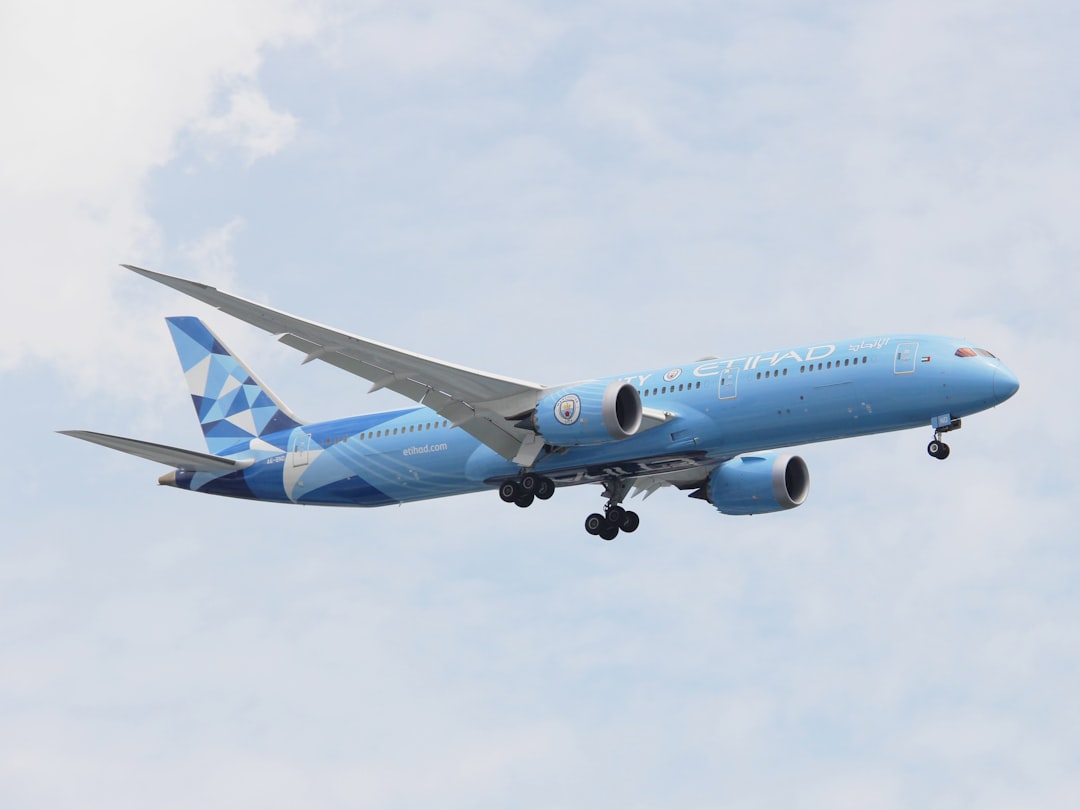Etihad Airways has begun a major shift in its network strategy, taking delivery of its first Airbus A321LR on July 24, 2025, in Hamburg. The airline will use this new aircraft to launch and test new routes from Abu Dhabi, aiming to reduce financial risk and increase flexibility as part of its “Journey 2030” vision. This move supports Etihad’s goal to make Abu Dhabi a top global aviation hub and reach 38 million passengers a year by 2030.
The A321LR, a long-range single-aisle jet, enters commercial service on August 1, 2025, flying from Abu Dhabi to Phuket. Nine more A321LRs will join the fleet by the end of 2025, with a total of 30 expected over the next few years. CEO Antonoaldo Neves says, “The A321LR enables us to serve more destinations with the same premium experience our guests expect across all cabins, perfectly embodying our commitment to delivering luxury at every altitude.”

Etihad’s new approach uses the A321LR’s range and efficiency to test new markets with less financial risk than larger widebody jets. If a new route does not perform well, the loss is smaller. If demand grows, Etihad can switch to bigger planes. This flexibility has already helped the airline launch or announce 27 new routes in the past year. The A321LR will soon fly to cities like Algiers, Bangkok, Copenhagen, Milan, Paris, and Zurich, reaching up to 7,400 km and opening direct flights to many secondary cities.
Passengers will notice big improvements. The A321LR features Etihad’s first-ever narrowbody First Class suites with sliding doors, fully-flat beds, and 20-inch 4K screens. Business Class offers 14 herringbone seats, all with aisle access, while Economy Class has 144 seats with 13.3-inch touchscreens and expanded bins. All cabins include Bluetooth, wireless charging, and high-speed Wi-Fi powered by Viasat, with full rollout across Asian routes by September 2025.
Benoît de Saint-Exupéry of Airbus says, “This aircraft sets a new standard for comfort in the single-aisle category and paves the way for increased connectivity as Etihad expands its operations from its Abu Dhabi hub.” Peter Anderson of AerCap adds, “These aircraft will enable further network expansion, offering exceptional performance, extended range, and improved fuel-efficiency, while enhancing the travel experience across all cabins for customers worldwide.”
The A321LR’s lower fuel use also supports Etihad’s environmental goals. The airline’s shift from relying on widebody jets to the more agile A321LR reflects changing travel patterns after the pandemic and a need for cost control.
Looking ahead, Etihad will continue to add more A321LRs and launch new routes, especially in Asia, Europe, and Africa. The airline’s focus on premium service, even on shorter routes, is expected to push competitors to improve their own products. According to analysis by VisaVerge.com, Etihad’s A321LR strategy is seen as a smart way to balance growth and financial discipline in a changing market.
For more details on air travel regulations and passenger rights, visit the International Civil Aviation Organization (ICAO) official website. Passengers, travel agents, and Abu Dhabi itself all stand to benefit from Etihad’s bold new direction.
Learn Today
Airbus A321LR → A long-range, single-aisle aircraft used by Etihad for efficient, flexible medium-haul routes with premium cabins.
First Class suites → Private cabins with sliding doors, fully-flat beds, and personal 20-inch 4K screens in narrowbody jets.
Herringbone seats → Business Class seating angled diagonally to provide aisle access for all passengers, enhancing privacy and comfort.
Widebody jets → Large aircraft with two aisles used for long-haul flights, typically more costly to operate than narrowbody jets.
Viasat Wi-Fi → High-speed wireless internet service powered by Viasat technology, offered onboard Etihad’s new A321LR aircraft.
This Article in a Nutshell
Etihad’s new A321LR aircraft starts service August 1, 2025, boosting route flexibility and luxury. It features first-ever narrowbody First Class suites and advanced inflight technology, supporting Abu Dhabi’s goal of 38 million passengers by 2030 through smarter network expansion and environmental focus.
— By VisaVerge.com













I love Us I want to live in USA